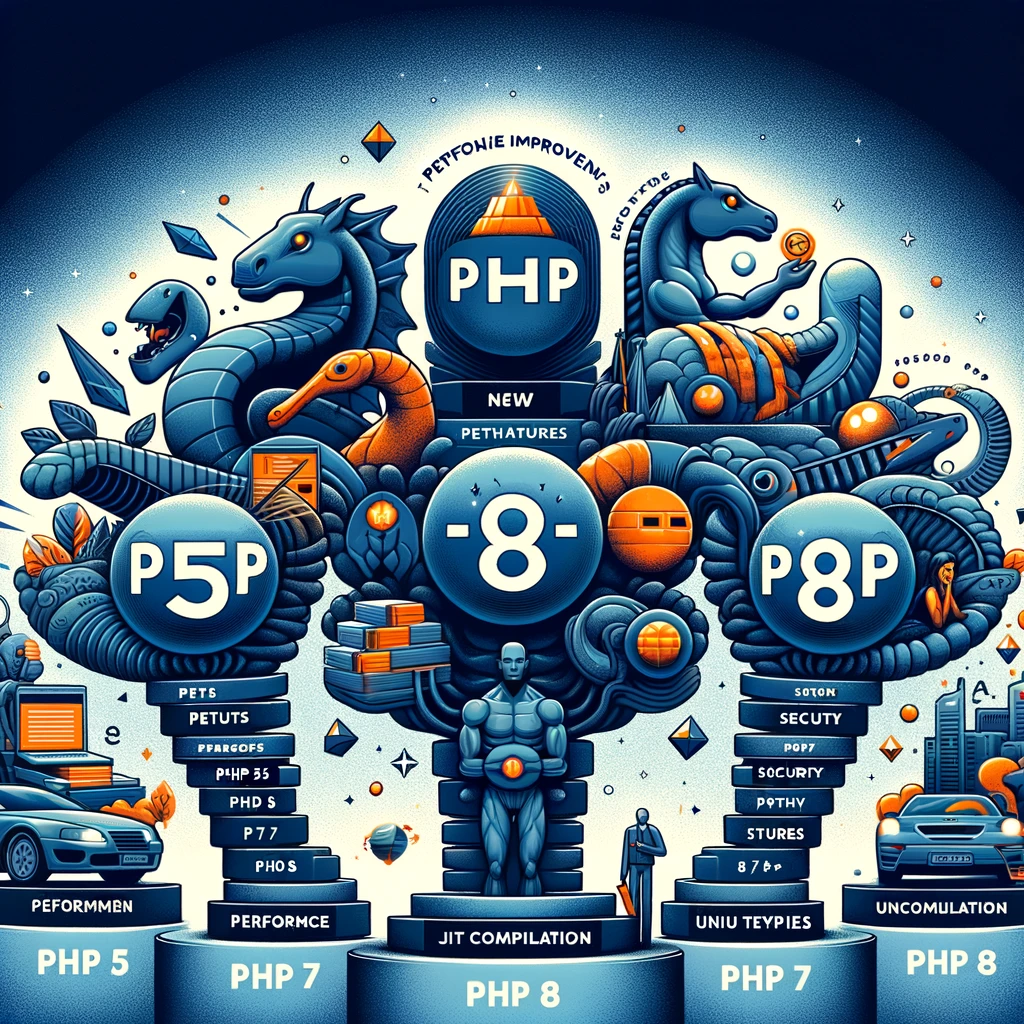Understanding PHP Versions: What You Need to Know
PHP is one of the most widely used server-side scripting languages for web development. Over the years, it has evolved significantly, with each version introducing new features, improvements, and deprecations. In this article, we will explore the different versions of PHP, their key features, and what you need to know to make the most out of them.
Table of Contents
- Introduction to PHP Versions
- PHP 5.x Series
- PHP 7.x Series
- PHP 8.x Series
- Choosing the Right PHP Version
- Conclusion
Introduction to PHP Versions
PHP, which stands for “PHP: Hypertext Preprocessor,” has undergone several major updates since its inception. Each major version of PHP introduces significant changes and improvements, making it crucial for developers to stay updated with the latest versions. Understanding these versions helps in maintaining compatibility, performance, and security of web applications.
PHP 5.x Series
PHP 5 was a major breakthrough, introducing object-oriented programming (OOP) features, improved MySQL support, and a new XML parser. Some key features of PHP 5 include:
- Object-Oriented Programming: Enhanced OOP capabilities with visibility, abstract classes, and interfaces.
- PDO (PHP Data Objects): A database access layer providing a uniform method of access to multiple databases.
- Improved Error Handling: Introduction of exceptions and better error handling mechanisms.
- Enhanced XML Support: New XML extensions and improved DOM handling.
Despite its advancements, PHP 5 is now outdated and no longer receives security updates. It’s recommended to upgrade to newer versions.
PHP 7.x Series
PHP 7 was a game-changer, bringing significant performance improvements and new features. It was almost twice as fast as PHP 5 and introduced numerous enhancements:
- Performance Boost: Improved performance and reduced memory usage.
- Type Declarations: Support for scalar type declarations and return type declarations.
- Null Coalescing Operator: A shorthand for checking if a variable exists and is not null.
- Spaceship Operator: A new operator for combined comparison (<=>).
- Anonymous Classes: Support for creating classes without naming them.
PHP 7 also deprecated several old features and functions, encouraging developers to adopt more modern coding practices.
PHP 8.x Series
PHP 8 is the latest major version, introducing even more powerful features and performance improvements. Some highlights of PHP 8 include:
- Just-In-Time (JIT) Compilation: Significantly boosts performance for certain types of workloads.
- Union Types: Allows specifying multiple types for parameters, properties, and return values.
- Attributes: Provides a native way to add metadata to classes, methods, and functions.
- Constructor Property Promotion: Simplifies the initialization of class properties.
- Match Expression: A more powerful and flexible alternative to the switch statement.
PHP 8 is highly recommended for new projects due to its modern features and superior performance.
Choosing the Right PHP Version
Choosing the right PHP version for your project depends on several factors:
- Compatibility: Ensure that your application and all its dependencies are compatible with the PHP version you plan to use.
- Security: Always use a PHP version that receives security updates to protect your application from vulnerabilities.
- Performance: Newer PHP versions typically offer better performance, so upgrading can improve the speed and efficiency of your application.
- Features: Consider the features introduced in newer versions and how they can benefit your project.
Regularly updating your PHP version ensures that your application remains secure, fast, and utilizes the latest features available in the language.
Conclusion
Understanding PHP versions and their respective features is crucial for web developers. PHP has come a long way from its early days, and each major version has introduced improvements that make development easier and more efficient. By staying informed and upgrading to the latest versions, developers can ensure that their applications are secure, performant, and utilize the best tools available.
Whether you are maintaining an existing application or starting a new project, choosing the right PHP version is essential. Always consider compatibility, security, performance, and features when making your decision.
Take action now: Check your current PHP version and plan an upgrade to the latest stable release to take advantage of the latest features and improvements!





